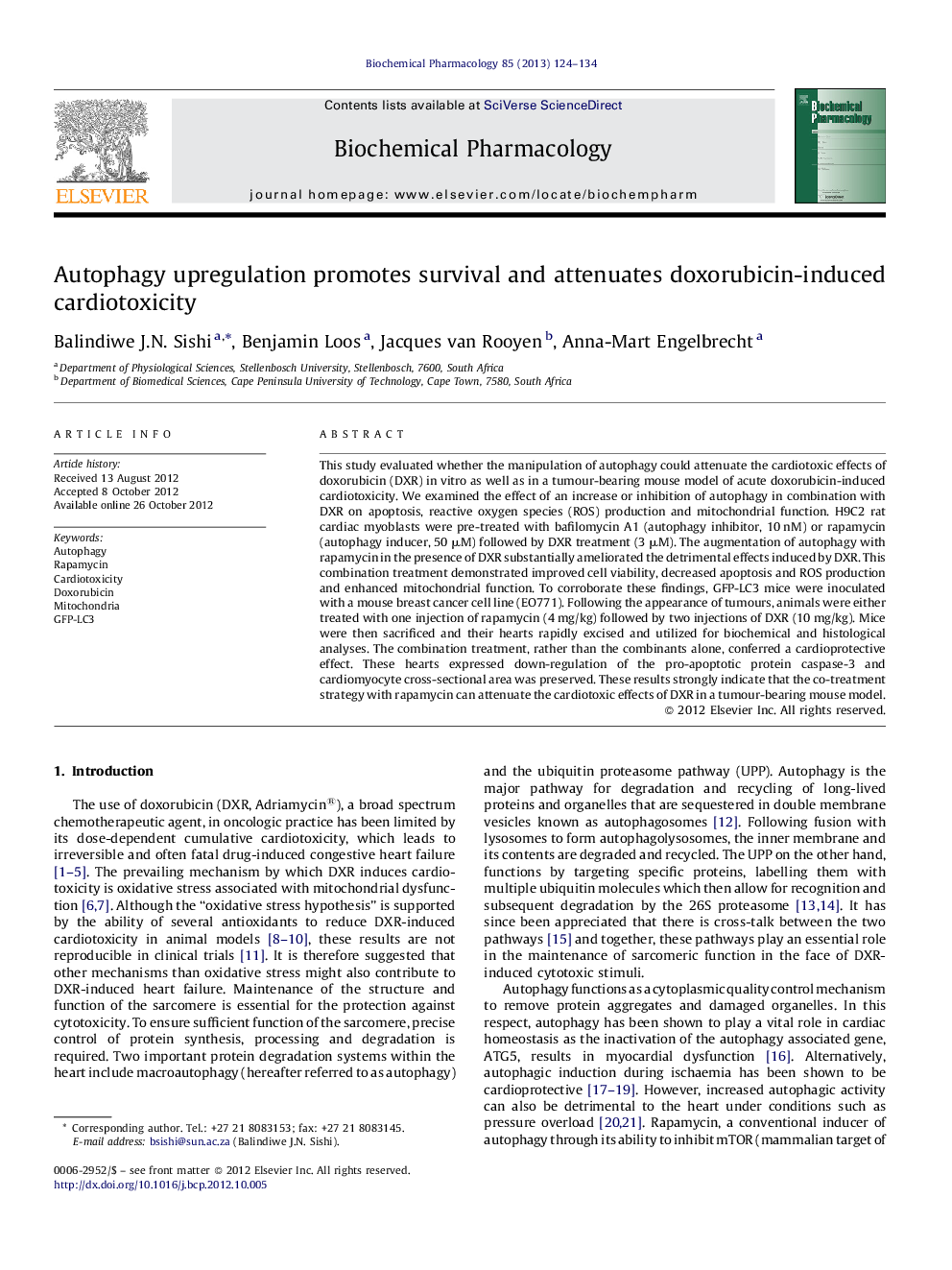| Article ID | Journal | Published Year | Pages | File Type |
|---|---|---|---|---|
| 5823803 | Biochemical Pharmacology | 2013 | 11 Pages |
This study evaluated whether the manipulation of autophagy could attenuate the cardiotoxic effects of doxorubicin (DXR) in vitro as well as in a tumour-bearing mouse model of acute doxorubicin-induced cardiotoxicity. We examined the effect of an increase or inhibition of autophagy in combination with DXR on apoptosis, reactive oxygen species (ROS) production and mitochondrial function. H9C2 rat cardiac myoblasts were pre-treated with bafilomycin A1 (autophagy inhibitor, 10 nM) or rapamycin (autophagy inducer, 50 μM) followed by DXR treatment (3 μM). The augmentation of autophagy with rapamycin in the presence of DXR substantially ameliorated the detrimental effects induced by DXR. This combination treatment demonstrated improved cell viability, decreased apoptosis and ROS production and enhanced mitochondrial function. To corroborate these findings, GFP-LC3 mice were inoculated with a mouse breast cancer cell line (EO771). Following the appearance of tumours, animals were either treated with one injection of rapamycin (4 mg/kg) followed by two injections of DXR (10 mg/kg). Mice were then sacrificed and their hearts rapidly excised and utilized for biochemical and histological analyses. The combination treatment, rather than the combinants alone, conferred a cardioprotective effect. These hearts expressed down-regulation of the pro-apoptotic protein caspase-3 and cardiomyocyte cross-sectional area was preserved. These results strongly indicate that the co-treatment strategy with rapamycin can attenuate the cardiotoxic effects of DXR in a tumour-bearing mouse model.
Graphical abstractDownload full-size image
